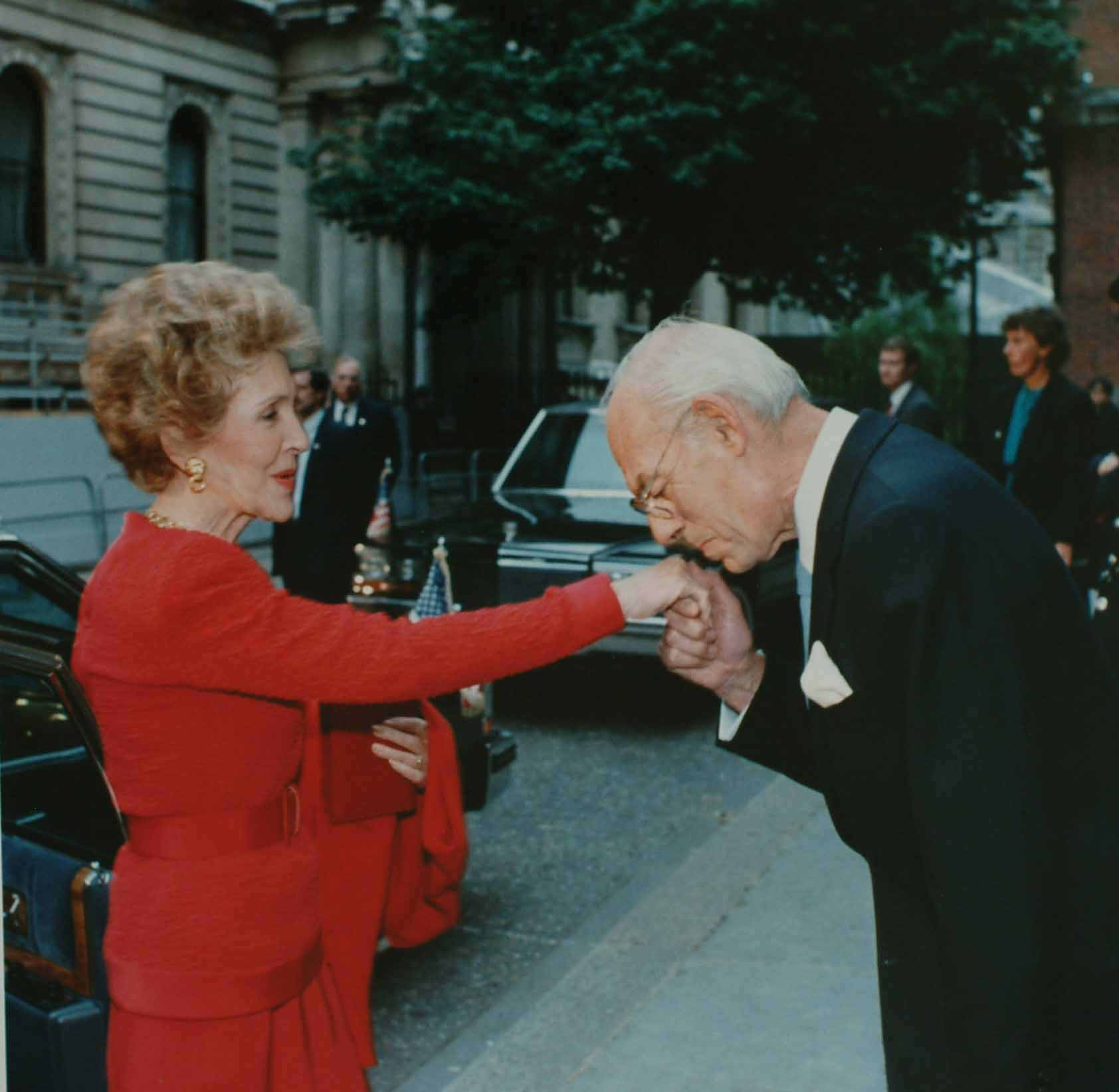Chapter 15. (continued)
Notice how a simple virtue like courtesy, which is probably formed from love plus wisdom, takes varying forms, but is still valued in all cultures.

namaste greeting (India)

U.S. Navy officer, saluting
.jpg)
British footballer, Steven Gerrard performing a wai (Thai greeting)

Dennis Thatcher (Margaret Thatcher's husband) kissing hand of Nancy Reagan (1983)

American serviceman and Maori warrior exchanging a hongi (New Zealand)

handshake after a tennis match (tennis culture ?)
Once
we accept the view that over generations, a maximally efficient cultural path, along which our
values and their attached behavior patterns steer us, exists in time itself, we
are admitting that values are real, in the sense that they connect us to
physical reality. Thus, we must conclude that only certain values, those derived
from our best world view—that is, from science—will be the rational choices to
guide humanity to greater health and vigor in the future. We all must live and
survive in this same physical universe.
The
courage-wisdom meme complex, along with the behavior patterns it entails, is
the human response to entropy; the love-freedom meme complex is our long-term
response to quantum uncertainty. The optimal balance of them all is given terms
like virtue or Tao. And it is always subtly shifting its path. Especially in
these nuclear-armed and climate-threatened times, we must see those shifts and
respond appropriately. Or die.

statue of Lao Tzu (China)
The
Tao Te Ching says: “The Tao that can be spoken is not the Tao.” Lao Tzu was
only telling his disciples never to become confident that they have life
figured out and can now become complacent about their capacity to handle life’s
events; complacency is the harbinger of disaster. The way of all ways, the Tao,
is always evolving. To live—as individuals, but far more importantly as nations—we
must stay resourceful, nimble, and sharp, individually and communally.
And
values themselves? They are just our best guides to where the survival path,
through the present and on into the future, lies.
Notes
1. “Convergent
Evolution,” Wikipedia, the Free
Encyclopedia. Accessed April 30, 2015. http://en.wikipedia.org/wiki/Convergent_evolution.
2. Richard Dawkins, “Selfish Genes and Selfish Memes,” in Douglas
R. Hofstadter and Daniel C. Dennett, The
Mind’s I: Fantasies and Reflections on Self and Soul (New York, NY: Basic
Books, 1981), pp. 123–144.
3. Alasdair MacIntyre, After
Virtue (London, UK: Bloomsbury Academic, 2013), p. 78.
No comments:
Post a Comment
What are your thoughts now? Comment and I will reply. I promise.